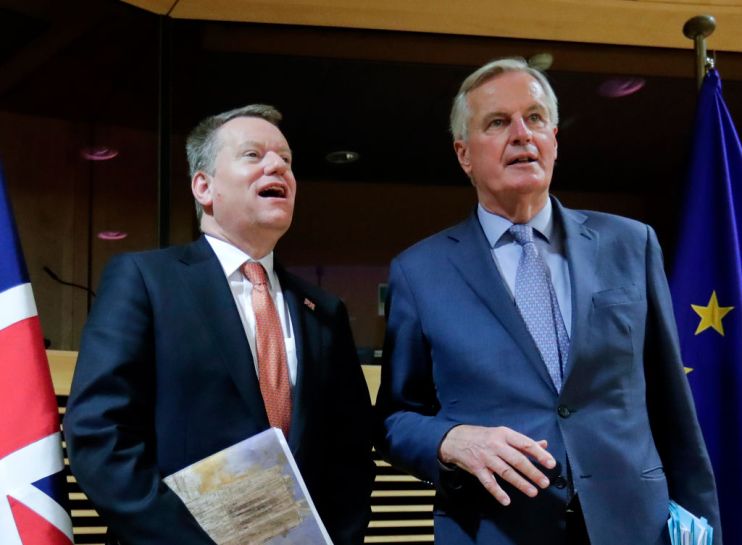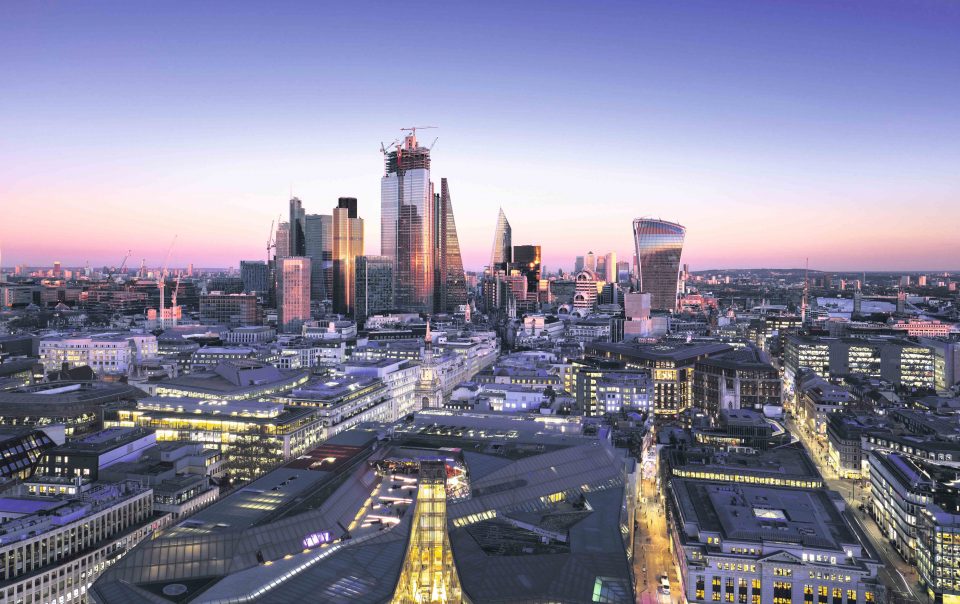Brexit trade talks: Will the deadline be extended over coronavirus?

Despite coronavirus, the UK’s chief Brexit negotiator David Frost, Boris Johnson’s so-called sherpa, and his Brussels counterpart Michel Barnier recommenced trade negotiations on Monday via video conference.
The week-long negotiating round is the first of three to be held over the next six weeks. The ultimate aim is to thrash out and ratify a UK-EU Brexit trade deal by the 31 December deadline.
Some have predicted that an extension to Brexit negotiations is inevitable due to the coronavirus pandemic.
However, Downing Street has steadfastly insisted there would be no change to the negotiating timetable.
Items on the agenda for this week’s talks include aviation, law enforcement, energy, data protection, foreign policy and governance.
Three of the most high-profile, and most contentious, issues they will discuss will be around financial services, the trade of goods and fisheries.
How will Brexit negotiations affect the City of London?

City of London firms will be keeping a close eye on negotiations involving financial services regulation.
Brussels only grants access to its markets if they agree to an equivalence regime with its trading partner. This means the country seeking a trade deal must set similar financial services regulations.
For Square Mile firms, most of which were opposed to Brexit, it is crucial they retain access to the EU. Almost half of all debt and equity issuance for non-financial Eurozone firms between 2012 and 2018 came from banks based in London.
Former chancellor Sajid Javid, writing exclusively in City A.M., said in February that the UK would pass a “full range of equivalence assessments by June 2020”.
However, he also called for a so-called permanent equivalence deal for “decades to come”. That would mean the UK could in future change its financial regulations but still maintain EU access.
Barnier was quick to deride the proposal, telling MEPs in Strasbourg that UK negotiators should “not kid themselves” and that they will not be granted a deal which gives the country equivalence in perpetuity.
“There will not be general open-ended or ongoing equivalence negotiations on financial services,” he said.
“We will keep control of these tools and will retain a free hand to take these decisions.”
The future trading of goods
Frost’s negotiating team will seek to maintain tariff-free trade of goods with the EU, according to the government’s “approach to negotiations” white paper.
Released in February, it said: “The provisions on market access should be comprehensive and ensure there are no tariffs, fees, charges and quantitative restrictions on trade in manufactured and agricultural goods between the UK and the EU, where goods meet the relevant rules of origin.”
The European Commission said in February that for the UK to “maintain quota-free, tariff-free trade relations” that it will need to guarantee a “fair playing field” on future competition.
This amounts to “guarantees for equal rules on, among other things, social, environmental, tax, state aid, consumer protection and climate matters”.
Shanker Singham, chief executive of trade law and economic policy consultancy firm Competere, said the two sides were “not as far apart as some would suggest” on some of these key issues and that there was a “landing zone” for a deal to be struck.
So long, and thanks for all the fish
A 2016 University of Aberdeen poll found that a staggering 92 per cent of Brits working in the fishing industry voted to leave the EU in the Brexit referendum.
This was primarily due to a feeling that the UK fishing industry had been fleeced by the EU’s Common Fisheries Policy.
The policy allows vessels from other EU countries to commercially fish in UK waters, leaving British fishermen to compete with super trawlers from countries such as France and Spain.
The government has stressed the UK must have control of its waters. But Frost and his team have not released any details about what this could look like.
However, it is understood that Barnier will push for EU states to retain some access.
Brexit negotiations over fishing policy will be crucial, with an EU official telling the Express last month that “if there is no progress on fish, there can be no progress in other areas of the talks”.
Singham said the talks over fishing access would be “very tough [Brexit] negotiations”.
“The EU has to realise that the UK needs to be an independent coastal state,” he said.
What happens if there’s no Brexit trade deal in 2020?
The UK is currently in a transition period, where it is still operating under EU rules and regulations, despite leaving the bloc in January.
If no deal is struck by 31 December then new taxes and trade barriers will be implemented on World Trade Organisation (WTO) terms between the EU and UK.
This has prompted fears that the UK could face another series of cliff edge moments. That would be similar to last year, when many feared the UK could crash out of the EU without a deal.
However, it is important to note that leaving the EU without a trade deal is very different from leaving without a deal at all.
The withdrawal agreement settled vital issues, such as the Northern Irish border question. This ensured there would be less disruption if the UK left without a trade deal than if it had left with no deal at all.
Could coronavirus delay Brexit trade talks?
Downing Street has repeated ad nauseam that there will be no delay to the 31 December Brexit deadline.
This is despite two negotiating rounds being cancelled and Michel Barnier being forced out of action for a period last month after contracting coronavirus.
Then Boris Johnson became seriously sick with coronavirus, and Brexit negotiations will now happen over video conference.
It is understood that the EU would be willing to discuss extending the deadline. But the Prime Minister’s official spokesman said last week that Downing Street would refuse an extension if Brussels asked for one.
City A.M. exclusively reported yesterday that some of Frost’s negotiating team are uneasy about the hardline approach taken by Downing Street.
The negotiating team is made up of politically appointed advisers and civil servants from several departments.
Sources close to the negotiating team said some civil servants thought a Brexit extension should be considered in light of the coronavirus crisis.
Others on the team, including several Vote Leave campaign veterans, are steadfast in their determination to leave the EU’s clutches entirely by 31 December.
International Monetary Fund chair Kristalina Georgieva last week urged both sides to extend the deadline in order to reduce political uncertainty as the global economy reels from the Covid-19 pandemic.
Veteran City of London pundit David Buik said an extension was inevitable, but that the government’s negotiating team should not concede that yet.
“Of course they will have an extension in the end, I don’t think it’s possible to do the deal in that time, but if the UK gives an inch now the EU will take miles,” he said.